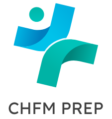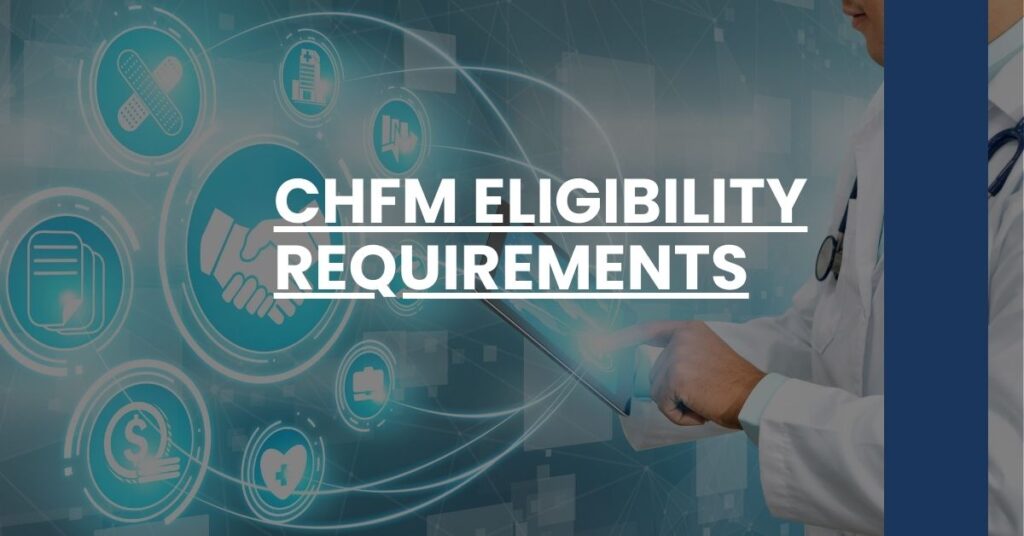To meet the Certified Healthcare Facility Manager (CHFM) eligibility requirements, you must have a combination of education and work experience in healthcare facility management. The criteria include:
- A bachelor’s degree and three years of related experience, or;
- An associate degree and five years of experience, or;
- A high school diploma and seven years of experience.
CHFM certification is your key to unlocking advancement in the field of healthcare facility management, with an emphasis on:
- Ensuring that candidates are equipped for the complexity and responsibility of the role;
- Providing validation of your knowledge and experience;
- Elevating your professional standing among peers.
Reading on, you’ll find guidelines to prepare for the CHFM exam and navigate the application process effortlessly.
- Introduction to CHFM Certification
- Why CHFM Certification Matters
- Basic Eligibility Requirements for CHFM
- Education and Work Experience Criteria
- Understanding the Examination Prerequisites
- Application Process for CHFM Certification
- Maintaining and Renewing CHFM Certification
- Additional Certifications and Training
- Overcoming Common Challenges in Meeting Eligibility
- Preparing for the CHFM Examination
- FAQs About CHFM Eligibility
- Conclusion: Your Pathway to CHFM Certification
Introduction to CHFM Certification
For professionals aspiring to lead in healthcare facility management, obtaining a Certified Healthcare Facility Manager (CHFM) certification is an essential step in showcasing your expertise and commitment to the field. This esteemed credential represents a thorough understanding of the complexity of healthcare systems and the critical importance of maintaining safe and efficient facilities. Let’s delve into the chfm eligibility requirements, so you can prepare to clear this significant career milestone with confidence.
Understanding the fundamental eligibility prerequisites is paramount to ensuring that your journey towards CHFM certification is both strategic and successful. In the following sections, you’ll gain insight into why the CHFM certification matters and precisely what you need to qualify for this elite distinction in healthcare facility management.
Why CHFM Certification Matters
Imagine being recognized as an authority in your profession, where your expertise is not just appreciated but sought after. With the CHFM credential next to your name, you achieve such prominence. This certification goes beyond a mere accolade; it is a testament to your specialized knowledge in healthcare facility management. It signals to employers, colleagues, and patients that you are committed to excellence in creating environments that support top-tier healthcare delivery.
By achieving CHFM certification, you not only bolster your resume but also join an elite group of professionals who have met rigorous standards. In doing so, you solidify your standing as a dedicated expert who is well-versed in the compliance, safety, and management challenges unique to healthcare facilities.
Basic Eligibility Requirements for CHFM
Meeting the chfm eligibility requirements is the initial step to embark on this path of professional advancement. At its core, eligibility centers around your educational background and work experience. The American Hospital Association’s Certification Center (AHA-CC) outlines specific criteria you must fulfill, which we’ll explore now.
These requirements serve as a foundation to ensure that candidates like you possess the appropriate expertise and practical background necessary to lead in healthcare facility management effectively. As you continue reading, keep in mind that each requirement is a building block towards achieving the CHFM certification.
Education and Work Experience Criteria
The academic and professional journey to becoming a CHFM is meticulous and rightly so, given the critical nature of the role. Here are the details on the education and work experience you need:
- Baccalaureate Degree or Higher: A bachelor’s degree is the minimum educational qualification required. Ideally, your degree should be in engineering, architecture, construction, business, or other fields related to facility management.
- Healthcare Experience: Your work experience must include a direct responsibility for healthcare facility management. The length of experience required will depend on your educational qualifications.
- Alternate Pathways: For those without a bachelor’s degree, there are alternative combinations of education and experience that can meet the eligibility criteria.
These criteria are carefully designed so that by the time you sit for the certification exam, you have a solid foundation of knowledge and real-world facility management experience. This ensures that as a CHFM, you are well-equipped to navigate the complexities of healthcare facility management. For deeper insights into the specific requirements based on your educational background, consider this useful guidance.
Understanding the Examination Prerequisites
The CHFM exam is the culmination of your professional development efforts and requires diligent preparation. Before registering, you’ll need to ensure you’re well-versed in the exam’s content areas, which span everything from compliance and risk management to operations and maintenance.
Approach your exam preparation earnestly, utilizing resources like the CHFM Exam Review Course and Self-Assessment Examination to gauge your readiness. A comprehensive understanding of the exam’s structure and the subjects it covers will empower you to craft an effective study plan, setting you on a clear path toward certification.
Application Process for CHFM Certification
Once you’ve determined that you meet the chfm eligibility requirements, the next step is mastering the application process. Your attention to detail throughout this phase is just as critical as in every other aspect of your pursuit of the CHFM designation.
The process can be distilled into a series of clear steps:
- Gather Documentation: Assemble all the necessary documentation to verify your educational qualifications and professional experience.
- Complete the Application: Fill out the application form, ensuring all the information you provide is accurate and comprehensive.
- Submit with Fees: Along with your completed application, submit the required fees to cover the application and examination costs.
Attention to detail here can mean the difference between a smooth path to certification or unnecessary delays. Each piece of documentation helps authenticate your journey and solidifies your candidacy for the upcoming examination. For a more detailed overview, check the Certification Center‘s application guidance.
Now that you’ve charted your course through the essential prerequisites, continuing your preparation for the CHFM examination becomes your primary focus.
Maintaining and Renewing CHFM Certification
Once you have obtained your CHFM certification, it’s important to think about the future. Maintaining and renewing your certification not only evidences your continued expertise but also your dedication to professional growth within the dynamic world of healthcare facility management.
Here’s how you can stay current:
- Continuing Education: CHFMs are required to earn a specified number of continuing education (CE) credits within a three-year recertification cycle. By participating in relevant educational and professional development activities, you ensure that your knowledge remains at the forefront of the industry.
- Renewal Choices: You have options when it comes to renewal. You can either document your CE credits or opt to retake the CHFM examination. Depending on your preference, you might choose the one best suited to your professional development plans.
- Documentation: Keep meticulous records of your CE activities. When the time comes, you’ll submit them as part of your recertification packet.
The American Hospital Association offers a comprehensive guide on CE credits and the recertification process, which you can find here.
Additional Certifications and Training
As a committed healthcare facility manager, augmenting your CHFM certification with additional training or certifications can be instrumental in elevating your professional portfolio. These additional qualifications can deepen your expertise in specialized areas like sustainability, safety, or medical planning.
Healthcare is an evolving field, and staying abreast of best practices through further education will enable you to lead with confidence and adapt to changing regulations and technologies. If you’re considering supplemental certifications, research the ones most aligned with your career goals and industry needs.
Overcoming Common Challenges in Meeting Eligibility
The road to meeting chfm eligibility requirements can have its hurdles, whether it’s gaining the necessary work experience or fulfilling educational prerequisites. If you’re facing challenges:
- Evaluate and Plan: Take a holistic look at your current qualifications and identify any gaps. Create a strategic plan addressing these gaps, with actionable steps and timelines.
- Seek Mentorship: Find a mentor who has successfully gone through the CHFM certification process. They can offer valuable advice, support, and maybe even opportunities to gain experience.
- Leverage Resources: Utilize resources from organizations such as ASHE (American Society for Healthcare Engineering) to gain knowledge and network with professionals in the field.
Preparing for the CHFM Examination
Your preparation for the CHFM exam should be thorough and well-planned. Utilize all available resources to bolster your readiness. These may include:
- Study Guides: Comprehensive study guides provide an outline of key topics and can help you structure your study time effectively.
- Practice Tests: Mock exams simulate the testing experience, making you comfortable with the format and identify areas where further review is needed. You can find practice tests and other preparation materials at Mometrix Academy.
Approach the preparation with diligence and intention, and you’ll set yourself up for success.
FAQs About CHFM Eligibility
You might still have questions about the chfm eligibility requirements. Seeking answers is an integral part of your research process, so don’t hesitate to reach out to the AHA Certification Center for specific queries. They offer a useful FAQ section that addresses common concerns, which you can find here.
Conclusion: Your Pathway to CHFM Certification
Embarking on the journey to CHFM certification is a move that can significantly shape the trajectory of your career in healthcare facility management. By meeting the chfm eligibility requirements, you set the stage for continued professional development, wider recognition, and the potential for leadership opportunities that can bring about meaningful change in healthcare environments.
Pursue your CHFM certification with the knowledge that every requirement you fulfill, every exam you prepare for, and every continuing education credit you obtain, brings you closer to realizing the full potential of your career and contributing to a field that makes a difference in people’s lives every day.
Remember, your pathway to CHFM certification is not just about reaching a professional milestone; it’s about committing to excellence and leadership in an industry where the stakes are always high, and the rewards for competent management have far-reaching implications for the health and well-being of the community you serve.

